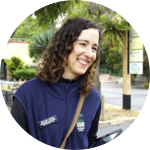About This Project
The A. aegypti mosquito is the main vector for dengue and zika viruses. This mosquito has developed resistance to common insecticides. We've shown that a species of roundworm is able to kill 85-100% of mosquito larvae in the lab. As a follow-up study we need to submit the roundworm to an “acid test” to verify its efficacy in urban settings. If the roundworm passes the test this could be an easy and cheap method to control mosquito populations and prevent the spread of dengue and zika viruses.
Ask the Scientists
Join The DiscussionWhat is the context of this research?
Aedes aegypti is the most important mosquito to public health worldwide because it is the main vector for major pathogens including dengue and zika viruses. Dengue afflicts over 400 million people every year(1)(2). Health officials use insecticides to control the mosquito population, but A. aegypti has developed insecticide-resistance(3).
We know that entomo-pathogenic nematodes (EPNs) are effective at controlling a range of insect pests in agricultural and urban settings(4). During a nematode survey in the Atlantic Forest of Brazil, we isolated EPNs from bromeliads, which is often where female mosquitoes lay their eggs.
Our hypothesis is these EPNs could be valuable to reduce A. aegypti population in urban settings and the incidence of dengue and zika worldwide.
What is the significance of this project?
Our research group discovered that some EPNs are pathogenic to mosquito larvae, this includes the nematode Heterorhabditis indica LPP35(5). Our studies in the lab and in the field identified some parameters that determine the efficacy of H. indica LP35 at killing the mosquito larvae.
In our studies the nematode killed 85-100% of the mosquito larvae when introduced to containers of different sizes and shapes that mimic natural mosquito oviposition sites(6).
This project is a natural follow-up study. We must submit H. indica LPP35 to a "acid test" to confirm its efficacy at killing the mosquito larvae under natural field conditions.
What are the goals of the project?
The goal of this project is to assess the efficacy of H. indica LPP35 at killing mosquito larvae in a range of field situations.
Discarded tires, plastic and glass pots and bottles of different sizes and shapes will be set outdoors to mimic typical mosquito ovipositing sites. These containers will receive different amounts of mosquito larvae or be left to be visited by egg-laying female mosquitoes. The EPN will be introduced to the containers and its efficacy at killing the larvae will be assessed a few days later.
A voile fabric attached to the containers will prevent the emergence of adult mosquitoes should the larvae evade infection by the nematode. This assay will be repeated throughout the seasons for 1 year to assess the EPN efficacy in a range of mean air temperatures.
Budget
A laboratory/field helper will be essential to help us set mosquito traps; collect mosquito eggs and larvae; prepare insect diet for rearing the entomopathogenic nematode; and set the field experiments.
The efficacy of the bioagent will be assessed in a range of containers that make perfect breeding grounds for the mosquito.
We´ll need to purchase gasoline and food while setting experiments in the city.
The nematode pathogenic to A. aegypti is reared in laboratory-grown honeycomb moth (Galleria mellonela) or mealworm beetle (Tenebrio molitor). Larval stages are fed with artificial diet and infected with the nematode. Upon death, the larvae serve as breeding ground for the nematode. Hundreds of thousands of nematodes are obtained from each infected larva.
Some laboratory items will be necessary in the laboratory and in the field.
New cultures of Galleria mellonela and Tenebrio molitor will be purchased for nematode rearing
Endorsed by
Meet the Team
Affiliates
Ricardo M. Souza
I´m a professor and scientist at UENF, a state university in Brazil. My research focuses on roundworms that are parasitic on plants as well as free-living forms that live in the tropical rain forest.
In the rain forest we`ve studied the ecology of roundworms that live inside bromeliads (1,2,3). With support from Experiment, we´ve applied a roundworm discovered in the rain forest to control de mosquito Aedes aegypti (see the project here ). You can see our laboratory, research team and publications here.
In addition to my university duties, I´ve served for two terms (2013-2019) as the president of the Brazilian Nematological Society, and I´m the founder of the NGO Amigos which campaings for public awareness of kidney diseases and provides multi-professional assistance to kidney patients.
Claudia Dolinski
I´ve always worked with roundworms. Recently I discovered their ability to kill insects and I 've been working with them as biocontrol agents of agricultural
and urban pests.
I believe we can lower the adult mosquito population if we focus on the larval stage. So far, our results showed great control, but we still need to check if the agents will survive and infect the mosquito larvae in places where they are normally found.
Roundworms can be a wonderful tool, if we know how to manage them.
Additional Information
Project Backers
- 7Backers
- 7%Funded
- $295Total Donations
- $42.14Average Donation







